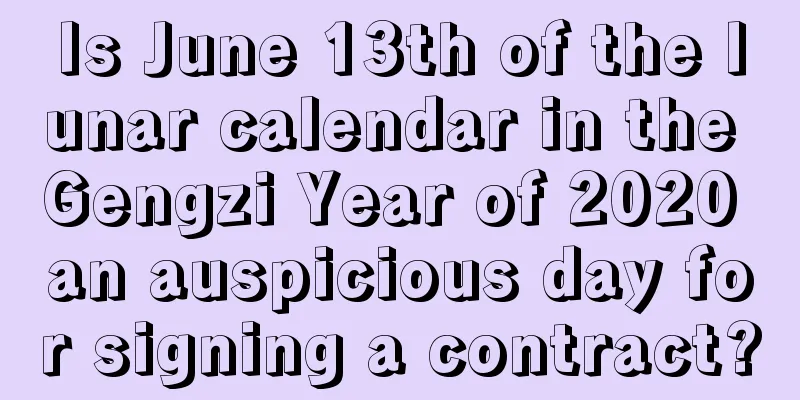What is the origin of New Year’s Eve and what does it mean?

Introduction: New Year's Eve is an important traditional festival in our country, and there are many stories about its origins. So what is the origin of New Year’s Eve and what does it mean? Let’s follow the editor to find out! The Fortune Teller website has carefully prepared relevant topics for the 2018 Chinese New Year and New Year’s Eve. Everything you want to know is included. Come and have a look!What is the origin of New Year’s Eve?There is a legend about the origin of the year. It is said that in ancient times, our ancestors were threatened by a most ferocious beast. This ferocious beast was called "Nian". It hunted animals for food. In winter, when food was scarce in the mountains, it would break into villages and hunt people and livestock, making the people in constant fear. People have been fighting against "Nian" for many years, and they found that Nian is afraid of three things: the color red, fire, and loud noises. So in winter people would hang red peach wood boards on their doors, burn fires at the doorsteps, and stay up all night banging and hammering on the doors. That night, "Nian" broke into the village, saw red and fire in every house, and heard deafening noises. It was so scared that it ran back into the mountains and never dared to come out again. As the night passed, people congratulated each other, hung up lights and decorations, drank and feasted to celebrate the victory.To commemorate this victory, every winter at this time, every household would paste red paper couplets on the door, light electric lanterns, beat gongs and drums, and set off firecrackers and fireworks; at night, they would stay up all night; and the next day, they would congratulate each other early in the morning. This tradition has been passed down from generation to generation and has become the "Chinese New Year". What does New Year's Eve mean?New Year's Eve is also known as New Year's Eve, New Year's Eve, New Year's Eve, and Suichu. It is the last night of the twelfth month of the lunar calendar every year. "Chu" means to remove; "xi" refers to night. New Year’s Eve is a festival for bidding farewell to the old and welcoming the new, starting a new year and bringing renewal to everything. Along with Qingming Festival, Zhongyuan Festival and Double Ninth Festival, it is China's traditional festival for ancestor worship, and is also a traditional cultural festival popular in countries in the Chinese character cultural circle.New Year's Eve is also called New Year's Eve because it usually falls on the 29th or 30th day of the twelfth lunar month. It is one of the most important traditional festivals in China. The people attach the most importance to it. Every household is busy cleaning the house to welcome their ancestors home to celebrate the New Year, and offer them rice cakes and three kinds of animals as sacrifices. The last day of the lunar year is called "Sui Chu" and the night of that day is called "Chu Xi". Since ancient times, there have been customs on New Year's Eve such as staying up all night, watching the year end, putting up door gods, spring couplets, New Year pictures, and hanging lanterns. These customs have been passed down to this day and are enduring. Influenced by Chinese culture, New Year's Eve is also a traditional festival in countries in the Chinese character cultural circle and Chinese and overseas Chinese around the world. In 2007, New Year's Eve officially became a legal holiday in China in accordance with the "National Holidays and Anniversary Days Holidays Regulations". In 2014, New Year's Eve was adjusted in accordance with the State Council's decision to amend the "National Holidays and Anniversary Days Holidays Regulations" and is no longer a legal holiday in China. Summary: The above content is about [What is the origin of New Year’s Eve and what does New Year’s Eve mean? 】Problem analysis, hope it can help everyone! |
<<: Is it possible to get engaged or married on the fourth day of the first lunar month in 2018?
Recommend
Is April 18th of the lunar calendar 2021 an auspicious day to pick up a car? What's the omen for this day?
Sophora japonica flowers bloom in April, so it is ...
Is November 22, 2021 in the lunar calendar an auspicious day for signing a contract?
There are certain rules and regulations for the si...
Is the second day of the fifth lunar month in 2022 a good day? Is it an auspicious day?
Each season is divided into three months: Meng, Zh...
Do babies born on April 24, 2018 in the lunar calendar have bad luck?
Introduction: The world will change with the passa...
What should we pay attention to in maintaining health during the Beginning of Autumn?
Around the beginning of autumn, the temperature re...
How to use Feng Shui knowledge to judge the good or bad Feng Shui of windows?
Introduction: Windows are important for every fam...
Is it good for people born in the Xiaoxue solar term of the Dog sign? What is fate?
Every person born during one of the twenty-four so...
Is it suitable to install a bed on the first day of September in the lunar calendar in 2019? Analysis of Feng Shui do’s and don’ts for installing a bed!
Introduction: You need to choose an auspicious day...
Is it a good idea to choose the sixth day of the first lunar month in 2020 as the date for moving? Does moving require Feng Shui?
Moving is an important matter, and the moving day ...
Is it a good idea to move house during the Double Ninth Festival in 2019? What should you pay attention to when moving?
Moving is a big deal, and you need to choose an au...
Will there be more rain after the Grain in Ear solar term in 2019? Which season is Grain in Ear?
Introduction: Grain in Ear is one of the important...
Is it auspicious for newlyweds to get a marriage certificate on May Day 2020? Is it auspicious or inauspicious to get married?
May Day is on May 1st of the Gregorian calendar ev...
How to improve luck when fortune is bad? What can suppress a person's luck?
Everything has two sides, and so does human fortun...
Is the winter solstice on the seventh day of the twelfth lunar month in 2020 an auspicious day for moving graves? When does the nine-day cold period begin?
Introduction: Relocating graves is one of the impo...
Can I pray on the first day of the third lunar month in 2021? Is the fortune for today a good one?
The third month of the lunar calendar is the month...









